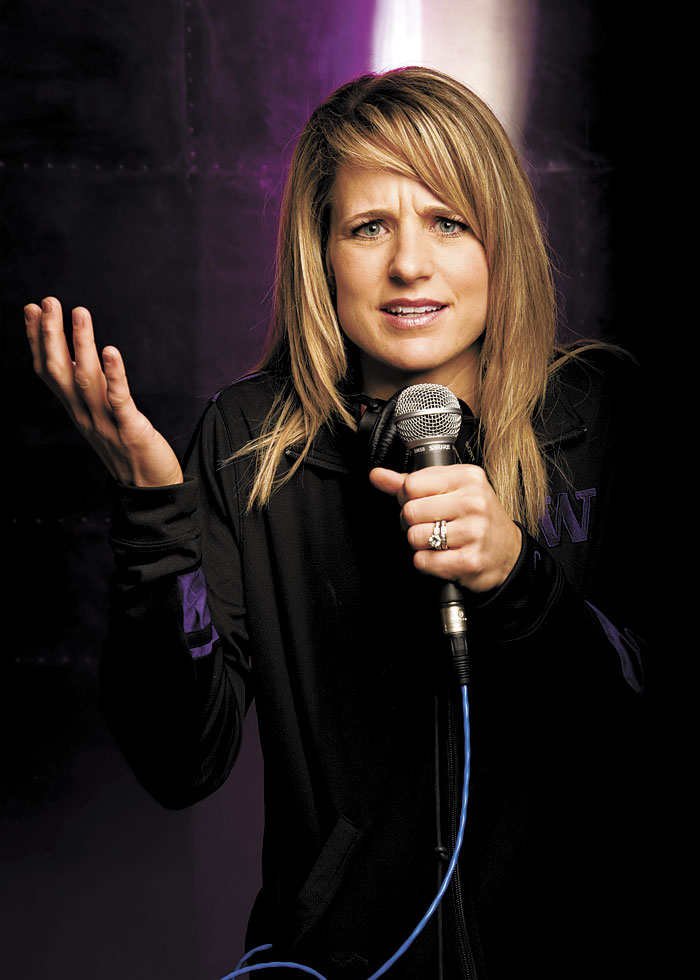While quaffing a beverage among friends at the Knarr, a fabled watering hole near Cowan Park, Peter Jackson’s cell phone rings. It’s his 17-year-old nephew, Jack Laurence, calling to check with his uncle/campaign manager about endorsements. And Jack isn’t talking about a run for student-body president. That’s just a popularity contest, he says.
On Feb. 9, Jack emerged from his precinct caucus as a delegate for Hillary Clinton. Two months later, members of his legislative district, the 46th, followed suit in electing Jack. And now, Jack is trying to represent the entire state of Washington as a Clinton delegate at the Democratic National Convention this summer. If elected, he’ll likely become the youngest national delegate ever to represent the state at a nominating convention, irrespective of party.
It’s been widely reported that young people are flocking en masse to Barack Obama’s camp, and Jack’s fellow students at Roosevelt High School, where he’s in his junior year, are no different. But despite his buddies’ constant ribbing, he’s sticking with Clinton.
“Hillary has more experience, and I see the country at a very complicated place,” he says.
Jack has the intrinsic makeup of a born politician. For one, his grandfather is Peter’s dad, Sen. Henry “Scoop” Jackson. Although the legendary Democratic senator died before he was born, Jack says he’s been deeply inspired by the man. In fifth grade, Jack wrote a research paper about his grandfather that hooked him on politics forever.
While unwavering in his support of Clinton, Jack is politically astute enough to know that if Hillary doesn’t pull out a win—and it’s looking pretty grim at this point—he’ll support Obama. But he hasn’t yet resigned himself to that reality. “I’m optimistic that she still has a chance,” he says. But the most important thing, he adds, is that a Democrat moves into the White House.
The day after the congressional caucus, Peter calls with good news. Two local Democratic leaders have decided to endorse Jack’s candidacy: King County Councilman Bob Ferguson, who named a son after Jack’s grandfather, and Congressman Norm Dicks, who’s pulling for Clinton.
“Jack’s the man,” says Ferguson. “I know he’ll make a great delegate to the Democratic National Convention—and I’m an Obama supporter!”
The Democratic National Party doesn’t keep records of delegates’ ages, says party spokesman Mike Czin. But the state Dems‘ executive director, Jaxon Ravens, says, “It’s possible [that Jack’s not the youngest], but we’d be hard-pressed to find someone younger than that. It’s very likely he’d be the youngest delegate ever elected in Washington state.”
On the Republican side, Patrick Bell, a press secretary for the Washington State Republican Party, says his party “had a delegate in years past who had just turned 18. I know we have several delegations this year with college students, and perhaps a high-school senior.” But, Bell adds, the high-school senior was born in 1989—a year before Jack. If there was a delegate in years past who was younger than Jack, it could only have been by a week or so: His 18th birthday is Oct. 25, making him eligible to vote (and, in turn, serve as a delegate) by a mere nine days.
At his home in Wedgwood, Jack answers the door in gym shorts, a T-shirt, and running shoes. He’s an active kid, playing soccer, track, and alto sax in the Roughrider marching band. Last summer, he climbed Mount Rainier, and now he’s looking for a summer job.
In his bedroom, there are almost no signs of his political aspirations, except for a couple of newspaper clippings from the caucuses. Other than that, there’s some framed art and a poster from the Red Hot Chili Peppers’ last release, Stadium Arcadium. In many ways, Jack’s just your typical high school kid.
“If he finds something he’s interested in, he’ll stick with it until he can do it. He’ll make a great delegate,” says Isaac Blankensmith, an Obama supporter and Jack’s best friend.
His friends, Jack says, all like Obama. As a young man at both the precinct and legislative caucuses, Jack stood more or less alone in Hillary’s corner, among mostly middle-aged women and blue-collar workers. He explains his support for Hillary thusly: Health care in this country is not universal, although it should be, he says, noting that Clinton has steadfastly advocated for universal health care. And as a survivor of hydrocephalus—water on the brain—the issue hits home.
Secondly, he believes the country’s environmental record is pretty shoddy. Clinton supports research into alternative fuels (as does Obama), and with gas prices being as high as they are, such exploration is a necessity, he says. Although he doesn’t have a driver’s license, he adds that he has “friends who have their licenses, but take the bus because they can’t afford gas.” And on May 20, Jack became an Eagle Scout—the highest rank a Boy Scout can attain. As such, he has an enhanced appreciation for the importance of the environment.
Jack had hoped to run for one of 51 congressional district spots, but inadvertently missed the May 2 deadline to declare his candidacy. (After the legislative caucus, he says, he was given a packet about running for the elections committee, but there was no mention in the packet of that deadline.) No bother, he says—he’ll just run for one of the 17 at-large spots at the state convention on June 13–15. (Of those 17 spots, five are designated for Clinton supporters.)
So far, 297 people have applied for an at-large spot, says Kelly Steele, a spokesman for the state party, and the due date to register, June 10, is still a few weeks out. The 17 winners will join 51 other delegates, as well as two unpledged delegates, 10 party leaders, and 17 superdelegates, to represent the state in Denver in August.
If he’s elected, Jack’s uncle believes success may come because of, not despite, his age. Says Peter Jackson: “It illustrates, once again, that intelligence, like ambition, usually skips a generation.”






